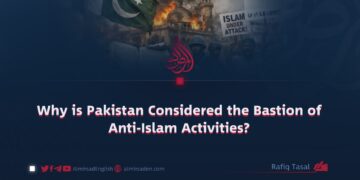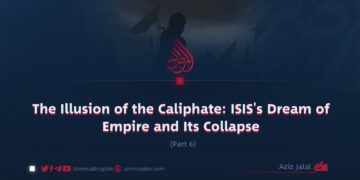Part 19
Written by: Abu Hajar al-Kurdi
As this series—marked by its many highs and lows—continues, we turn our attention to the relentless betrayals committed by ISIS in Iraq and the grievous harm it inflicted upon Ahl al-Sunnah in the land of al-Rafidain (Mesopotamia).
The consequences of ISIS’s treachery in Iraq surpassed imagination and brought a level of devastation that words can scarcely convey.
Its emergence was not merely a catastrophe for the Iraqi nation at large but also a calculated and devastating strike against the Sunni Mujahideen—the very factions that had long waged jihad against oppression, foreign occupation, and corrupt regimes. Cloaked in the false rhetoric of establishing a caliphate, ISIS wrought the following harms upon Ahl al-Sunnah and genuine jihadist movements:
1. Sabotaging the Unity of Sunni Mujahideen
Prior to ISIS’s emergence, numerous Sunni factions—such as Jaish al-Mujahideen, Ansar al-Islam, Naqshbandi Army, among others—were actively engaged in resistance against the central Iraqi government and foreign occupiers. However, ISIS labeled these groups as apostates and enemies, excommunicated them, and systematically killed or exiled many of their members.
This uncompromising and exclusionary approach fractured the unity of Ahl al-Sunnah, leaving them vulnerable to both internal disintegration and external aggression.
2. Providing a Pretext for the Oppression of Ahl al-Sunnah
Through extreme acts of violence—including public executions, destruction of mosques and shrines, and crimes committed against minorities—ISIS deliberately tarnished the image of Muslims in the international arena. These actions handed regional governments and foreign powers a convenient justification to bomb, invade, and occupy Sunni-majority areas under the pretext of “combating terrorism.”
3. Tyrannical Domination Over Sunni Territories
By seizing control of major Sunni cities such as Mosul, Fallujah, Ramadi, and Tikrit, ISIS brought vast territories under its rule. Yet this control was not exercised for the service or welfare of the people, but rather to enforce an oppressive and merciless regime that bore no resemblance to the principles of true Islam. Countless Sunni scholars, tribal leaders, and ordinary citizens who opposed ISIS’s ideology were subjected to execution, torture, or displacement.
4. Undermining the Legitimacy of True Jihad
The brutality and fanaticism of ISIS led many—both within the region and across the broader Muslim world—to view their religious slogans with suspicion and contempt. ISIS distorted sacred Islamic principles such as jihad, the caliphate, amr bil-ma‘ruf (enjoining good), and nahi ‘anil-munkar (forbidding evil), weaponizing them as instruments of coercion, tyranny, and mass killing.
5. Facilitating Iranian and Western Expansion
Despite its loud proclamations of enmity toward Iran, ISIS, in practice, created the very circumstances that allowed Iranian influence to spread further in Iraq and Syria. In fear of ISIS, many territories fell into the hands of Iran-backed militias. Moreover, the U.S.-led international coalition used the campaign against ISIS as a pretext for a large-scale reentry of foreign forces into the region, further complicating the geopolitical landscape.



















































